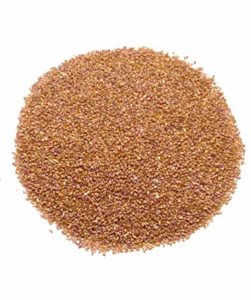A court in the Netherlands has ruled that two Dutch patents for processing teff, a kind of grain which has been used for thousands of years to make injera, the fermented pancake that Ethiopians eat with their meals, are null and void. The Ethiopian government has welcomed the verdict.
The patents had led to outrage in Ethiopia, where teff is widely considered to be a part of the national cultural heritage. They were also in the way of Ethiopian exports to the European market, where this so-called ‘ancient grain’ or ‘superfood’, just like quinoa for example, enjoys a growing popularity.
But the conflict about the Dutch patents has now ended with the verdict of the District Court in The Hague, where an infringement case had been filed in 2014 by the holder of the teff patents, the company Ancientgrain, against a rival, bakery giant Bakels. The court ruled that both patents are invalid due to lack of inventive step. The method to bake bread from the flour ‘is a very common baking method that belongs to the general professional knowledge’ and the mixing of different grains ‘can be considered to be part of general professional knowledge’ and therefore not be considered inventive.
 The court issued its ruling in November 2018, but the decision was announced only last week, among others by Fitsum Arega, the Ethiopian Ambassador to the United States, who celebrated the outcome. ‘This is great news. I hope we can learn from this that our national assets must be protected by Ethiopians & friends of Ethiopia.’
The court issued its ruling in November 2018, but the decision was announced only last week, among others by Fitsum Arega, the Ethiopian Ambassador to the United States, who celebrated the outcome. ‘This is great news. I hope we can learn from this that our national assets must be protected by Ethiopians & friends of Ethiopia.’
According to the Dutch embassy in Ethiopia, ‘the reason for the late announcement is the time for appeal was still running. As no appeal was made, the verdict is now final: the claim to processing teff by patent holder is null and void in the Netherlands.’
The Dutch patents on teff were applied for in 2003 and obtained in 2007 by the company Health and Performance Food International (HPFI) of the Dutchmen Jans Roosjen and his associate Hans Turkensteen. According to the French newspaper Le Monde, which wrote about the ‘teff war’ several times, it all started on a positive note, when HPFI signed an agreement with Addis Ababa in 2005: ‘in exchange for privileged access to various varieties of seeds to produce non-traditional foods and beverages, it undertakes to share the profits of its sales and the fruits of its research on teff with its African partners, and to contribute to a development fund dedicated to small Ethiopian producers.’
In 2009 however, HPFI went bankrupt. The agreement with Ethiopia was off, but Roosjen and Turkensteen continued their business with new teff export companies founded shortly before the bankruptcy. Le Monde refers to a report from the Norwegian research institute Fridtjof Nansen, published in 2012, according to which Ethiopia received only 4000 euros in profits over five years of cooperation, whereas the Dutch entrepreneurs were able to buy back the teff patents for 60.000 euros. According to the Fridtjof Nansen report, the teff dossier is a clear case of ‘biopiracy’: ‘Ethiopia found itself discarded, prevented from using its own genetic resources teff in several European countries, but also to benefit from their exploitation.’
Ancientgrain is still in the possession of a European teff patent, which is currently valid in Belgium, Germany, Austria, Italy and the UK. The Ethiopian government has vowed to combat this patent by all legal and diplomatic means. As Almaz Ebba of the Ethiopian embassy in the Netherlands told the Dutch Daily Trouw: “This is not just about the money. We cannot accept that two business partners get a patent for our most important food.”
________________________
To make sure you do not miss out on regular updates from the Kluwer Patent Blog, please subscribe here.


